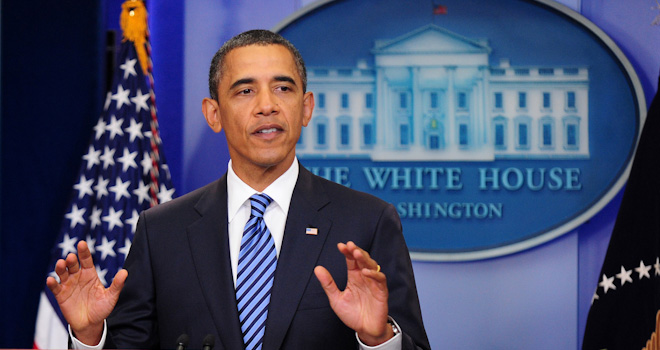As we analyze and try to make sense of how this debt ceiling drama has worked out, there’s one important difference with the original crisis 12 years ago to keep in mind. Back in 2011, President Obama was very much bought into the idea of deficit reduction and “the grand bargain.” Some of this of course is the distinct matter of inoculating against Republican fiscal politics — nods to fiscal probity, deficit reduction and so forth. To really understand politics it’s critical to distinguish between true agendas and reactive, positioning politics of that sort. But, to a degree, he was actually bought into it.
Back in the Obama years I was occasionally invited to these off-the-record conversations with the President where a group of columnists or reporters talked with him for an hour or more. One of those I went to happened probably sometime in late 2010 or 2011. I don’t remember precisely when it was. But it was after most of the big agenda items were passed — financial services reform and Obamacare — and well before the debt limit crisis. At one point in that discussion Obama was answering someone’s question and he said something to this effect. He looked back at the major new spending of TARP, Obamacare and other stuff and said that at some point everyone was going to have to come together and get spending and (I think he said) entitlements in check.
I remember very distinctly doing this double take where I thought to myself, wait what?
Don’t put too much into how I’m characterizing what he said. It was an off the record conversation and much more importantly I don’t have a crisp recollection of his exact words. But the gist I remember as clear as day: Obama was really bought into the mythology of the grand bargain as considerably more than reactive signaling.
It’s important to note that this isn’t just about Obama. The entire Democratic party was very different. When Obama was elected President there were probably a good dozen Democratic senators very much in that mold, and significantly more in that mold than Obama. There was a whole Joe Manchin wing of the party. That’s in part how they were able to have — albeit very briefly — 60 Democratic senators. We can’t forget that Obama had only been in Washington for four short years when he became President and the impress of his economic advisors — Larry Summers, Tim Geithner — ran deep. For years and years Biden’s closest and most influential economic advisor has been Jared Bernstein, a guy who started out and spent many years at the labor/liberal Economic Policy Institute. World of difference. He became Chair of the Council of Economic Advisors in February.
In any case, beyond the folly of negotiating over debt-limit hostage taking this unquestionably shaped how the drama unfolded in 2011. I don’t want to overstate it. But to some degree Obama negotiated and ended up with the result he did because part of him bought into the basic premise.






